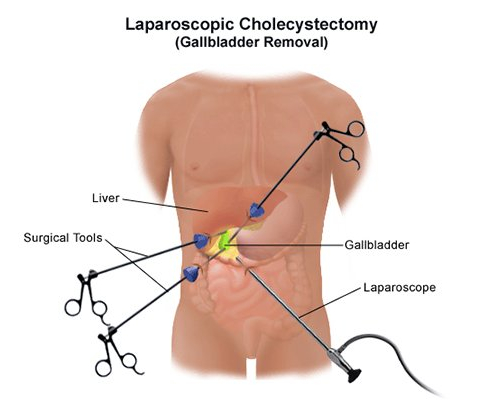Gallbladder Removal Surgery

Gallbladder removal surgery is a common and effective procedure to treat gallstones and other gallbladder-related conditions. The surgery is typically performed laparoscopically, offering patients faster recovery and fewer complications compared to open surgery. For those seeking the best gallbladder stone removal treatment in Ahmedabad, consulting a specialist ensures optimal outcomes and minimal risks.
Eligibility for Gallbladder Removal Surgery
Gallbladder removal surgery is suitable for individuals experiencing symptoms such as severe abdominal pain, nausea, and digestive issues due to gallstones, gallbladder inflammation (cholecystitis), or gallbladder polyps. It is also recommended when non-surgical treatments fail or complications such as pancreatitis occur. Candidates should undergo a thorough medical evaluation by the best gall bladder surgeries doctor in Ahmedabad to ensure surgery is the best course of action.
Required Preparations Before Surgery
- Consultation and Evaluation: Patients undergo tests such as ultrasound, blood work, and possibly an MRI to assess the severity of the condition and determine the need for surgery. A consultation with a gall bladder surgeon in Ahmedabad will help determine the most suitable approach for the patient's condition.
- Dietary Adjustments: Patients may need to fast for a certain period before surgery to prepare the digestive system. The gall bladder surgeon in Ahmedabad will provide specific dietary instructions.
- Physical Preparation: Patients are advised to stop smoking, avoid alcohol, and cease medications that could interfere with surgery, such as blood thinners.
The Surgical Procedure
The surgery is typically performed laparoscopically, through small incisions. During the procedure, the surgeon removes the gallbladder, eliminating the source of pain and potential complications. This minimally invasive technique, commonly used in gallbladder removal, offers quicker recovery compared to traditional methods. In certain cases, an open gallbladder operation may be required if complications arise or the anatomy is not suitable for a minimally invasive approach.
What to Expect After Surgery
- Immediate Recovery: Patients usually stay in the hospital for a few hours or overnight depending on the complexity of the surgery. Full recovery is expected within 1-2 weeks following gallbladder removal surgery.
- Diet: Post-surgery, patients will follow a light diet, gradually reintroducing regular foods as tolerated. Some individuals may need to avoid high-fat foods initially, which is common after gallstones surgery.
- Long-term Changes: Without a gallbladder, bile flows directly into the small intestine, which may cause some digestive changes. However, most patients adapt well and experience significant relief from symptoms.
Expected Results from Gallbladder Removal Surgery
Patients can expect complete relief from the symptoms of gallstones or gallbladder inflammation. Long-term, most people lead normal lives without a gallbladder, with improved digestion and fewer dietary restrictions compared to pre-surgery. For those seeking the best gallbladder stone removal treatment in Ahmedabad, surgery offers an effective solution with significant improvement in quality of life.
Potential Risks and Complications
As with any surgery, gallbladder removal has potential risks, including:
- Bile leakage or bile duct injury.
- Infection at the surgical site.
- Blood clots or adverse reactions to anesthesia.
- Changes in digestion, such as diarrhea or bloating, are possible after gallbladder removal surgery.
Follow-up After Surgery
- Regular follow-ups are crucial for monitoring recovery after gallbladder stone operation. These visits help ensure that any complications are identified early and treated promptly.
- We urge you to rigorously adhere to the follow-up program that will be provided to you upon discharge from the hospital.
- You will need to see the gall bladder surgeon in Ahmedabad and the team on a frequent basis for the first year, then once a year for the rest of your life.
- Completing any recommended tests as directed contributes significantly to long-term health after gallbladder operation.
- An upper GI endoscopy must be performed once a year following any major gastrointestinal surgery, including gallbladder removal.
Why Consult Dr. Jenit Gandhi for Gallbladder Surgery?
Dr. Jenit Gandhi is highly experienced in performing gallbladder removal surgery with precision and care. His patient-centric approach ensures a thorough preoperative evaluation and personalized care plan, leading to safer outcomes and faster recovery. Dr. Gandhi is considered one of the best gall bladder surgeries doctor in Ahmedabad, offering advanced laparoscopic techniques to minimize complications and ensure a smooth surgical experience for gallbladder stone removal and gallstones surgery.
For more information about Laproscopic Surgery click here.